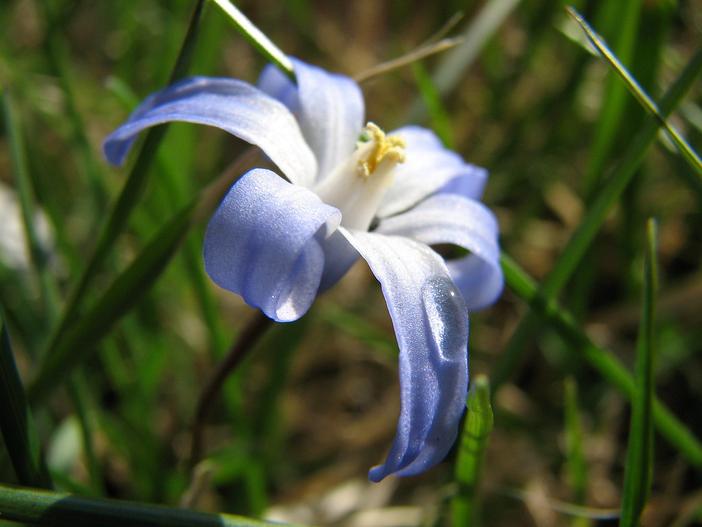Blue Star Creeper
(Isotoma fluviatilis)
Blue Star Creeper (Isotoma fluviatilis)
/
/

Audrey
CC BY 2.0
Image By:
Audrey
Recorded By:
Copyright:
CC BY 2.0
Copyright Notice:
Photo by: Audrey | License Type: CC BY 2.0 | License URL: https://creativecommons.org/licenses/by/2.0/ | Uploader: audreyjm529 | Publisher: Flickr

























Estimated Native Range
Summary
Isotoma fluviatilis, commonly known as Blue Star Creeper, is a semi-evergreen to deciduous perennial herb native to open woodlands and grasslands in Eastern Australia. It typically forms a low-growing mat and can spread quite widely, making it an excellent ground cover. The plant reaches a modest height of 2-5 centimeters and can spread to 30-60 centimeters wide. During the summer months, from November to March, Blue Star Creeper produces a profusion of white to pale blue, five-petalled, star-shaped flowers that create a striking carpet-like effect. The flowers are particularly showy and can add a splash of color to garden beds, rockeries, or when used to fill spaces between paving stones.
Blue Star Creeper is valued for its ability to form dense mats that suppress weeds, making it a low-maintenance option for gardeners. It is also appreciated for its charming flowers and versatility in various garden settings. While it prefers dappled sunlight or part shade, it can tolerate full sun if kept moist. It thrives in moist, well-drained soils and is generally pest and disease-free, although it can be susceptible to root rot if overwatered. This plant is not known for aggressive roots or significant disease problems, making it a reliable choice for cultivation. It is not typically invasive when grown outside its native range but should be monitored to ensure it does not spread beyond desired areas.CC BY-SA 4.0
Blue Star Creeper is valued for its ability to form dense mats that suppress weeds, making it a low-maintenance option for gardeners. It is also appreciated for its charming flowers and versatility in various garden settings. While it prefers dappled sunlight or part shade, it can tolerate full sun if kept moist. It thrives in moist, well-drained soils and is generally pest and disease-free, although it can be susceptible to root rot if overwatered. This plant is not known for aggressive roots or significant disease problems, making it a reliable choice for cultivation. It is not typically invasive when grown outside its native range but should be monitored to ensure it does not spread beyond desired areas.CC BY-SA 4.0
Plant Description
- Plant Type: Herb
- Height: 0.2-0.3 feet
- Width: 1.2-2 feet
- Growth Rate: Moderate
- Flower Color: Blue, White
- Flowering Season: Spring, Summer
- Leaf Retention: Semi-Deciduous, Evergreen
Growth Requirements
- Sun: Full Sun, Part Shade
- Water: Medium
- Drainage: Medium
Common Uses
Groundcover, Low Maintenance, Potted Plant, Rock Garden, Showy Flowers, Street Planting
Natural Habitat
Native to open woodlands and grasslands in Eastern Australia
Other Names
Common Names: Swamp Isotome
Scientific Names: , Isotoma fluviatilis, Laurentia fluviatilis, Lobelia fluviatilis, Rapuntium fluviatilis,
GBIF Accepted Name: Isotoma fluviatilis (R.Br.) F.Muell. ex Benth.